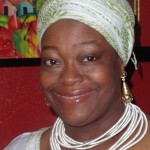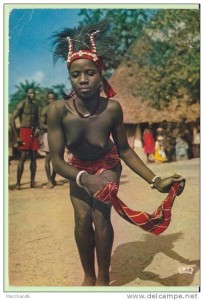Gershom Browne of the British West Indian Regiment and the Great War of 1914-1918
The 28th July 2014 marked one hundred years since the outbreak of the First World War (1914-1918). Because there were many talks and television broadcasts on the subject, I recently asked a group of people in their seventies and also some young people if they knew anything about the role that African-Caribbean soldiers played in WW1.
Most were unaware that soldiers of African-Caribbean descent went to that war. I was not surprised about the disconnection and lack of knowledge most people have about this aspect of history, because such events are rarely publicized. This article hopes to re-address in some small way that lack of information, with the hope that it encourages others to look into and reclaim other aspects of their history.
During the First World War, 15,600 men enlisted into the British West Indies Regiment and fought on the side of the Allies. Over 700 officers and soldiers from British Guiana (now Guyana) voluntarily enlisted and travelled overseas as members of the British West Indies Regiment. Gershom Browne was one such soldier. This article looks at his experiences in the Great War, the social life in British Guiana leading up to the war, and the reasons why many volunteered to fight in a war considered by many as the “white man’s war.”
Gershom Browne’s grandfather, David Sullivan Browne was born in Sierra Leone in 1819; twelve years after the Abolition of Slavery Act had been passed. During the 1840s, approximately 1500 Kru-men arrived to work in St Vincent as indentured labour, with more arriving in the 1860s; however, St. Vincent was not the only island in which they settled. Kru-men, originally from Liberia and Sierra Leone, had a long history of traversing between Africa and the Caribbean. They were respected for their navigational abilities and after 1807; some were employed as seamen on British naval ships patrolling the Atlantic for slave carrying vessels. In 1841, Kru-men and other African migrant workers began settling in British Guiana and the West Indian islands, where many of them formed unions with local Creole women.
David Sullivan Browne married Susan Snell and the union produced two children, Alexander and Mary. Beginning in the mid-1800s, Alexander, along with thousands of other West Indian workers migrated to British Guiana. Following the collapse of the Apprenticeship System in 1834, many former Guianese slaves refused to work for their enslavers. Instead they began to buy their own land with the aims of becoming self-sufficient.
This created a serious labour and economic shortage for British planters so they raised wages to attract labour from other West Indian islands. Although conditions in British Guiana were better (because of higher wages and the abundance of land), it was not the utopia that some migrants envisioned.
After Emancipation heavy taxes were placed on food, animals and farming equipment along with high interest rates on bank loans which allowed the planters to manipulate and exploit the economic market. Such hardships made it impossible for those who had formed their own villages to develop their infrastructure and gain the economic independence they sought.
Alexander Browne settled in West Bank Demerara and married Joannah Rodney. That union produced Gershom who was born on 8th August 1898 at La Retraite, WBD. However, Alexander fathered three other children before his marriage. This was not unusual because for more than 200 years, people of African descent were forbidden to marry under British law, making common law union’s one of the legacies on which West Indian society was built.




